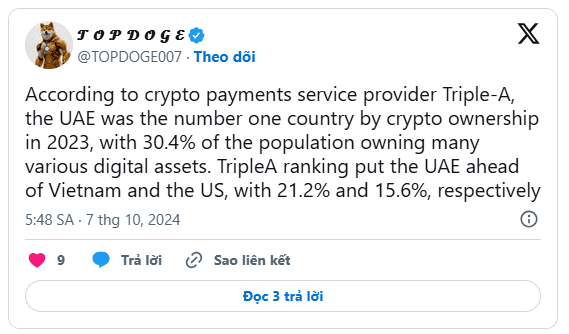According to statistics, the flow of capital from blockchain into Vietnam in the 2023-2024 period reaches over 105 billion USD, about 4 times higher than the total FDI capital in the same period.
Profits from this market alone in 2023 amount to nearly 1.2 billion USD. A report from Triple-A also shows that over 20% of the Vietnamese population owns digital currency, placing Vietnam among the top 3 countries in the world in terms of crypto acceptance, 3-4 times higher than the global average.
However, trading and owning crypto is currently not protected by law, posing many risks for individual investors.

Government Tightens Management, Banks Get Involved
To control the market, the government is promoting the legalization of crypto assets and piloting the establishment of domestic exchanges.
The goal is to protect citizens from fraud, create a transparent investment channel, and combat tax evasion. This is also why many banks are starting to pay attention to this field.
On August 12, the Military Bank (MB) signed a memorandum of understanding with Dunamu – the operator of the Upbit exchange (South Korea).
The two sides will cooperate in technology infrastructure, operational experience, and legal framework consulting, while Dunamu supports the establishment of a digital exchange in Vietnam according to FATF international standards.
The Wave of Participation from Private Banks
Not only MB, many large private banks are also getting involved. At this year's shareholders' meeting, Techcombank Chairman Ho Hung Anh emphasized:
“Participating in blockchain, building digital asset exchanges is an inevitable trend in the digital transformation strategy of financial institutions.”
Previously, VPBank CEO Nguyen Duc Vinh also acknowledged that although this field is still new and risky, “financial institutions cannot stand on the sidelines.”
In contrast, state-owned banks like BIDV are cautious, only wanting to participate as payment banks and develop policies, rather than directly operating exchanges.
